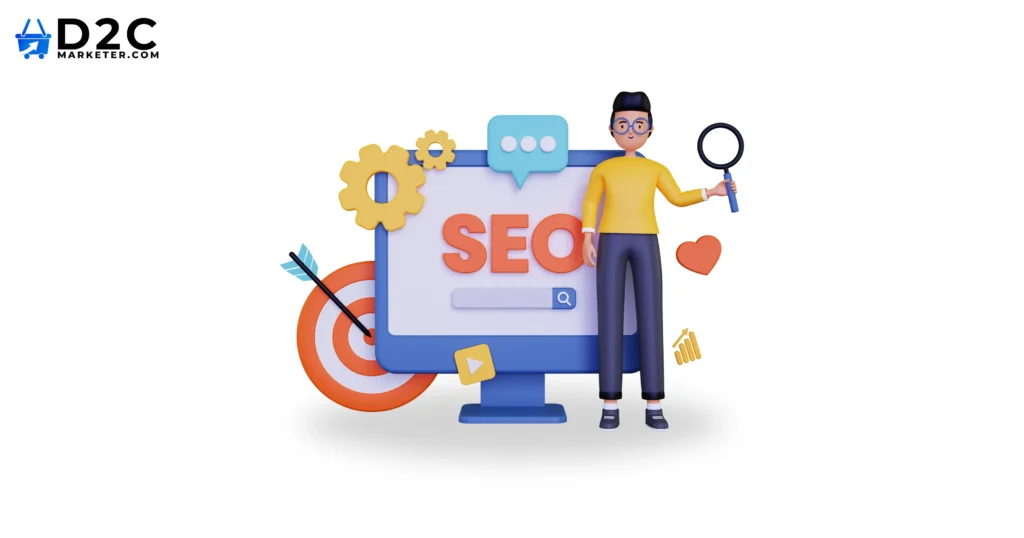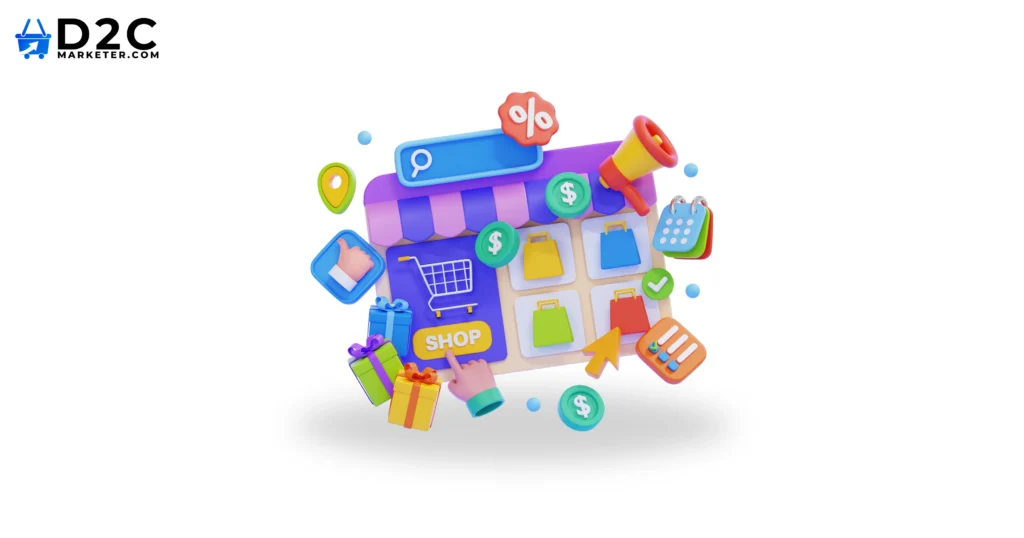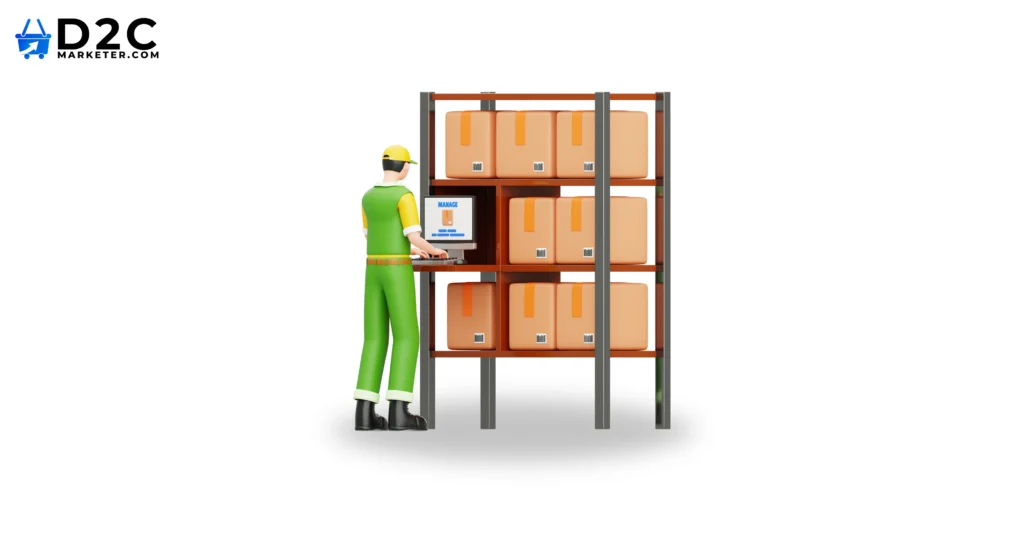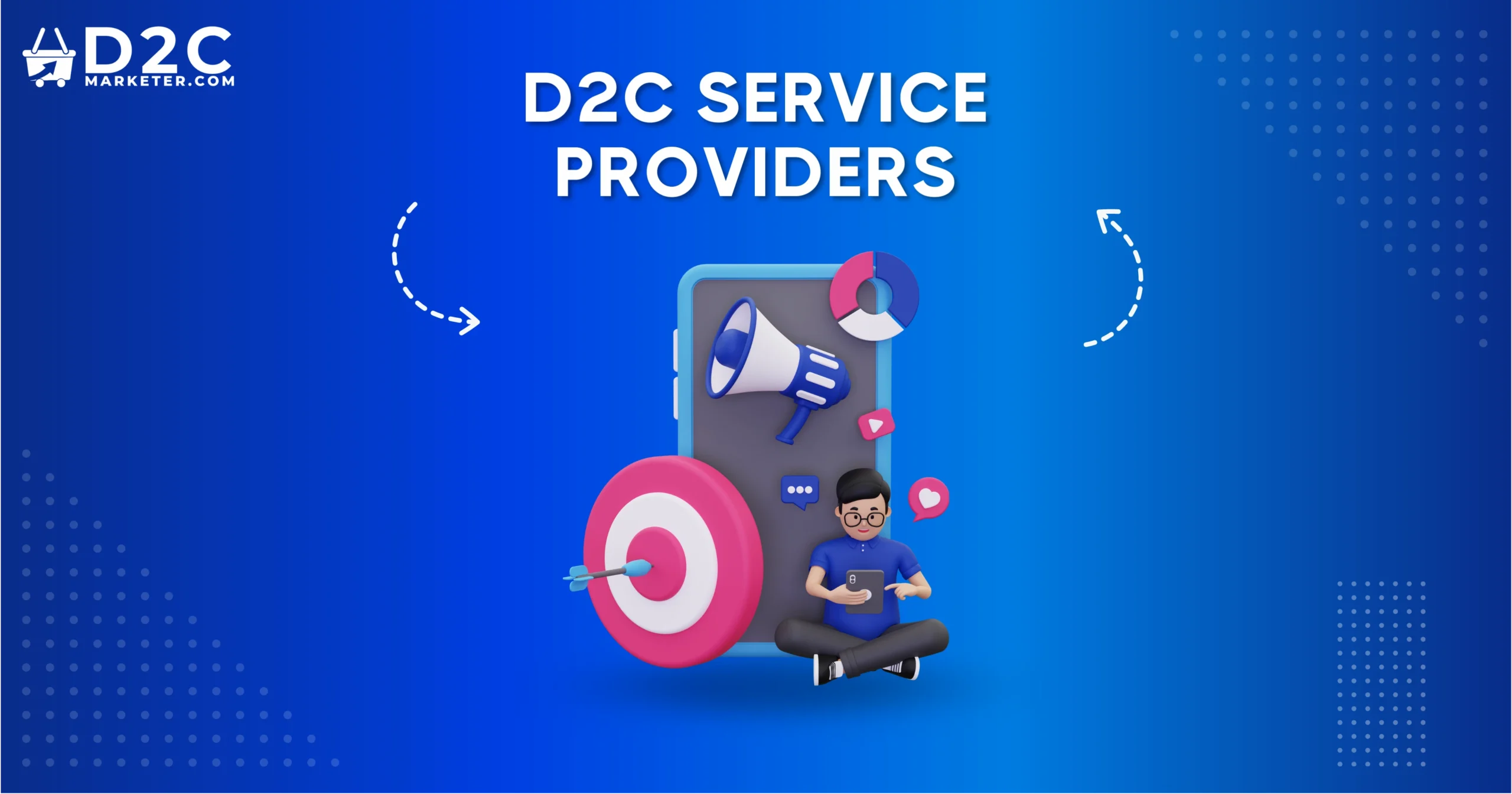Top Service Providers for D2C Brands in 2025
As a D2C (direct-to-consumer) brand, choosing the right d2c service providers can be the difference between skyrocketing growth and progress. Whether you’re scaling your marketing efforts, optimizing logistics, or integrating the latest technology, the best d2c service providers will be critical to your success.
With the right support, you can refine your D2C marketing strategy, boost your visibility across key D2C marketing channels, and streamline operations to better serve your customers. In 2024, D2C brands face a competitive landscape, so selecting top-tier d2c service providers with proven expertise in D2C solutions is essential.
This guide will help you discover the best D2C service providers across marketing, logistics, and technology, equipping you with the resources you need to elevate your brand’s performance and stay ahead of SEO trends for D2C brands.
Let’s dive in!
Table of Contents
Best SEO and Digital Marketing Providers

When you’re growing a D2C brand, the right marketing strategy can make or break your success. It’s not just about having a great product, you need to be seen and heard by your audience in a crowded marketplace. That’s where the best D2C service providers come in. Working with a D2C marketing agency that understands the unique challenges of selling directly to consumers can give your brand the boost it needs to stand out.
Agencies like D2C Marketer are experts in crafting direct to consumer marketing strategies that really connect with your audience. They know how to make the most of the right D2C marketing channels, whether that’s through paid ads, influencer partnerships, or organic search. And when it comes to SEO, they stay on top of the latest SEO trends for D2C brands to make sure your website is ranking high and driving traffic.
Why is this so important? Well, SEO and performance marketing aren’t just nice-to-haves, they’re essential for scaling your brand. Good SEO helps your site get noticed in search engines, which means more potential customers discovering you. Performance marketing allows you to track what’s working and fine-tune your campaigns to get the best return on investment. With the right strategies in place, your D2C brand can not only grow, but thrive.
Pros:
- Long-term brand visibility.
- Scalable growth strategies.
Cons:
- SEO can take time to show results.
- Performance marketing requires ongoing budget allocation.
Best E-commerce Platforms and Tools

When you’re running a D2C brand, finding the right e-commerce platform and tools is like finding the perfect pair of shoes, everything has to fit just right. You want something that can grow with your brand, keep everything running smoothly, and make it easier for you to connect with your customers. That’s where platforms like Shopify and WooCommerce come in.
Shopify is a favorite among many D2C brands because it’s simple to set up, yet super powerful when it comes to scaling. It has a ton of apps and integrations that can help automate everything from inventory management to marketing, so you don’t have to do it all manually. If you’re looking for something with a bit more flexibility, WooCommerce might be the way to go, it’s fully customizable and integrates seamlessly with WordPress, which gives you more control over your site’s design and features.
But it’s not just about the platform itself. The right tools can really help you take things to the next level. Klaviyo, for example, is a go-to for personalized email marketing. It lets you send targeted campaigns that feel super personal, which can lead to better customer retention and higher sales. And then there’s Clarity, which helps you understand exactly how people are using your website. With Clarity, you can see what’s working and where people are dropping off, so you can make quick changes that improve the user experience and boost conversions.
With the right mix of e-commerce platforms and tools, you can streamline everything, from managing inventory to optimizing your site, and make sure your customers have the best possible experience. That’s how you start building a solid, scalable D2C brand.
Top E-commerce Platforms for D2C Brands
| Platform | Features | Pros | Cons |
| Shopify | Easy-to-use, customizable themes | Scalable, all-in-one platform | Transaction fees on non-Shopify payments |
| WooCommerce | Flexible, WordPress integration | Open-source, highly customizable | Requires technical know-how |
Best Fulfillment and Logistics Providers

When you’re running a D2C brand, the last thing you want is to get bogged down by fulfillment and shipping headaches. But let’s face it, handling logistics can quickly become overwhelming, especially as your brand starts to scale. That’s where having the right fulfillment partner can make all the difference. The best D2C service providers offer solutions that help you get your products to customers quickly and efficiently, without all the stress.
Two of the top players in the fulfillment game are ShipBob and Fulfillment by Amazon (FBA). ShipBob is a go-to for many D2C brands because it offers a one-stop shop for storage, packing, and shipping. They’ve got warehouses all over the country, so you can offer fast, affordable shipping to customers without having to worry about managing everything yourself. Plus, ShipBob integrates with most e-commerce platforms, making it super easy to manage orders and inventory all in one place.
On the other hand, Fulfillment by Amazon (FBA) is a fantastic choice if you’re looking to tap into Amazon’s massive reach. Amazon takes care of everything, from storing your products to packing and shipping them, and they’re known for their lightning-fast delivery. If you’re already selling on Amazon, using FBA can also help you get the coveted “Prime” badge, which can seriously boost your sales.The beauty of working with top fulfillment providers like ShipBob or FBA is that they take the logistics off your plate, so you can focus on growing your brand. With everything running smoothly behind the scenes, you can dedicate more time to perfecting your D2C brand strategy, engaging with your customers through D2C marketing channels, and staying ahead of SEO trends for D2C brands. When your logistics are in good hands, scaling becomes a whole lot easier.
| Pros | Cons |
| Faster delivery times. | Higher costs for premium fulfillment services. |
| Reduced overhead on logistics management. | Dependency on third-party providers. |
Technology and SaaS Providers
Scaling a D2C brand isn’t just about selling great products; it’s also about having the right tech in place to keep everything running smoothly. The right tools can help you streamline processes, improve customer service, and keep your operations efficient as your brand grows. With the right D2C solutions, you’ll save time, avoid mistakes, and focus on the bigger picture, growing your business.
Let’s talk about CRM (Customer Relationship Management) and ERP (Enterprise Resource Planning) tools. You might be thinking, “Do I really need these?” The answer is yes, especially as you scale. A CRM tool like HubSpot or Salesforce helps you keep track of customer interactions, manage sales, and organize all your marketing efforts. Think of it like having a super-organized virtual assistant who helps you build better relationships with your customers. You’ll know who your best customers are, what they’re buying, and how to keep them coming back.
Then there’s ERP software like NetSuite or Odoo. These tools help you manage your day-to-day operations, things like inventory, accounting, and order fulfillment, all in one place. Instead of juggling spreadsheets or using different systems for each part of your business, an ERP integrates everything into a single platform, so you can stay on top of things as your business grows.
And let’s not forget about automation tools. Running a business means a lot of little tasks that can pile up. With tools like Zapier, you can automate a lot of the repetitive stuff, like sending follow-up emails or syncing your inventory across platforms. It’s like having your own robot assistant who takes care of the small things, leaving you more time to focus on strategy, like fine-tuning your D2C marketing strategies or planning your next big campaign.
Finally, a data analytics tool like Google Analytics is key to understanding how your website and marketing efforts are performing. These tools show you what’s working and what’s not so you can make better decisions. For example, if you see that certain products are flying off the shelves, you can adjust your direct to consumer marketing strategy to promote those even more.
In the end, having the right technology in place helps you keep everything running smoothly behind the scenes, so you can focus on growing your brand. Whether it’s improving customer service, optimizing your operations, or making smarter marketing decisions, these tools are essential for scaling your D2C business without the chaos.
Conclusion
Choosing the right d2c service providers can make all the difference in the growth of your D2C brand. From refining your D2C marketing strategy to optimizing logistics and implementing cutting-edge technology, the best D2C service providers are the partners that can help you scale efficiently and stay ahead of the competition.
Whether it’s boosting your visibility with expert SEO, streamlining operations with the best e-commerce platforms, or improving customer service with powerful CRM tools, each step you take toward the right solution will get you closer to achieving your brand’s goals.
If you’re looking for the right partners to help you elevate your D2C brand, D2C Marketer is here to guide you through the process. Our expertise in D2C marketing strategies and D2C solutions can help you choose the best providers to support your growth.
Ready to take your brand to the next level? Contact D2C Marketer today to get started!
FAQs
While multiple providers are crucial, a strong fulfillment partner stands out. They ensure seamless order processing, packaging, and shipping, directly impacting customer satisfaction and brand reputation.
Consider factors like scalability, customization options, integration capabilities, and pricing. Platforms like Shopify, and WooCommerce offer different features and cater to various business sizes and needs.
Fulfillment providers handle order processing, warehousing, packaging, and shipping, reducing operational burdens. They optimize logistics, improve delivery times, and enhance customer experiences, contributing to overall D2C success.
SaaS tools automate various processes like marketing, sales, customer service, and inventory management. They streamline operations, save time, and provide valuable insights, enabling D2C brands to scale efficiently.
While possible, managing logistics in-house can be complex and resource-intensive. Third-party providers often offer specialized expertise, economies of scale, and advanced technology, making them a more efficient and cost-effective solution for many D2C brands.

